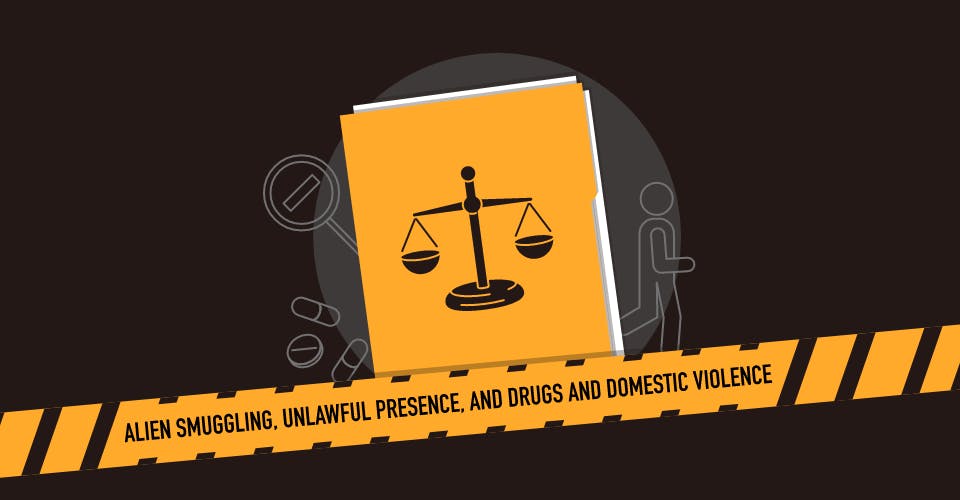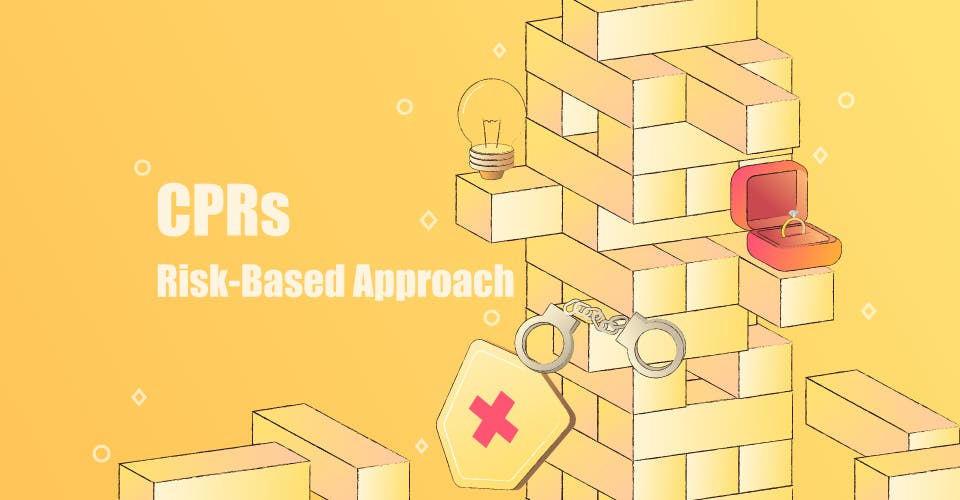The Immigration Legal Resource Center (ILRC) has laid out an advisory guide on how to prepare immigrant applicants for key questions and thematic topics during their consular processing interview. This guide, at the time of writing in 2018, also included the category of Public Charge. However, as of right now, under the current Biden Administration, the public charge rule has effectively been blocked and will not be enforced for both domestic adjustments of status applicants as well as consular processing applicants abroad. It is worth examining, however, the other criteria that the ILRC has so nicely laid out in their briefing document.
This blog will be dedicated to unpacking some of the language and other thematic concerns that are included in this document which include the following:
- Alien Smuggling
- Unlawful Presence
- Drugs, DUIs, and domestic violence
Alien Smuggling
Brown (2018) lays out firstly that alien smuggling is a common topic amongst consular processing interviews. Consular officers will not ask visa applicants directly if they have been involved in alien smuggling, but will rather ask questions about the applicants children, if they are already in the United States, or if the applicant has any other relatives that they knowingly helped enter the United States at some point in time. These are questions that demand very strategic answers, because how you answer could land you inadmissible to the United States at the discretion of the consular officer.
Brown (2018) notes the following definition, “…alien smuggling includes arranging travel or sending money with the express purpose to bring another person to the United States unlawfully, even if they did not accompany the person on their trip to the United States or physically bring them across the border”. In addition, alien smuggling must include an affirmative and knowing act. Consular processing applicants must know these definitions before they show up for their consular interview and must understand cues for what the officer is referencing when they discuss payments that might have been made to certain family members.
If you are a visa applicant and are able to go over your case and family members who may be present in the United States that you helped or aided in any way, shape, or form, you might want to contact an attorney before your consular interview. You might also want to file for an I-601A Waiver of Grounds of Inadmissibility. You can use this USCIS waiver to be excused in limited circumstances if you did in fact engage in some act of alien smuggling. Generally, you cannot use this waiver if your act of alien smuggling was intentional and you were directly responsible for another immigrant's EWI.
Entries and Exits
Other questions that consular officers might bring up include all of the applicant's history with regard to traveling to and from the United States. It is common for consular processing applicants to have already visited the U.S., especially if they are married or engaged to a U.S. citizen. Applicants should know that if they have overstayed a visa, they are technically in violation of U.S. immigration law and could be found inadmissible to the United States. Make sure if you are an applicant abroad you have no EWIs—Entries Without Inspection, or that you have never accidentally overstayed a visa.
The officer will ask questions about specific dates of when you were in the U.S. and when you left to determine if you stayed past the expiration date of your visa.
Drugs, Domestic Issues, and Substance Abuse
While we have covered the consular processing medical exam, one thing to note about this process is that you may be asked for a urine sample to screen for substances prior to your consular processing interview. You can be found inadmissible to the United States if the sample comes back positive for a number of federally illegal substances. In addition, you won’t be able to file an I-601 Waiver of Inadmissibility if the case is drug-related (Brown, 2018).
Your consular officer, even if you have passed your medical exam, will still question you about medical or recreational marijuana usage. In addition, if you have tattoos that symbolize marijuana usage or are related to the industry, you might be sent back to the lab for another drug screening. If you have any tattoos that have any reference to a gang or other underground organization, you might also be found inadmissible at the time of your interview. It is advised that clients who may have been part of any gang, but no longer are, to not try and cover up their tattoos. They will be asked to explain their significance no matter what.
While these three issue areas are not exhaustive of what might be asked of visa applicants abroad, it does the tricky nature of consular processing interviews and the nature of the language the officer is using to make references to alien smuggling, drugs, illegal entries. Applicants must be properly briefed on these issues so they know when they are running into a trap on the interview, or are potentially getting nervous and making their case seem less credible.
For the full ILRC Advisory Guide on Consular Processing Interviews, please the following link: https://www.ilrc.org/sites/default/files/resources/prepare_clients_visa_intrvws_us_consul-20181105v2.pdf











